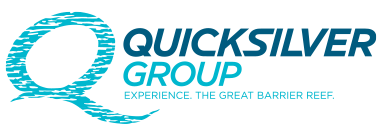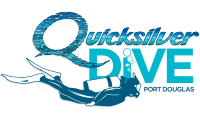Dive Medical Information
When diving in Australia there are different regulations and requirements compared to those in other countries. The following rules apply in Queensland:
Introductory Dives: You will need to fill in a Medical Questionnaire. If answering YES to any question it will not necessarily disqualify you from diving, but will indicate the need for a medical assessment by a qualified physician prior to diving that conforms to Australian Medical Standard AS4005-1.
Experienced/Certified Divers: Prior to diving, you may be asked to fill out a Medical Questionnaire; this is not a legal requirement but is done in the your own best interests.
The purpose of the questionnaire is to determine whether you should be examined by a doctor. There may be a pre-existing condition that has not stopped you from diving in your own country, but Australian laws do not allow; or perhaps there could be a new condition developed since you became qualified to dive which may well affect your safety while diving.
If you answer YES to any of the conditions listed on the Medical Questionnaire, we recommend you see a physician for further assessment in order to scuba dive. It is best to visit a physician whilst in Australia, as this medical will comply with Australian Standards (AS4005.1).
Scuba diving is an exciting and demanding activity. To scuba dive safely, you must not be extremely overweight or out of condition. Diving can be strenuous under certain conditions. Your respiratory and circulatory systems must be in good health. All body spaces must be normal and healthy. A person with heart trouble, a current cold or congestion, epilepsy, asthma, a severe medical problem, or is who under the influence of alcohol or drugs, should not dive. If taking medication, consult your doctor before taking part in this program.
Advice from the Australian Maritime Safety Authority - WHSQ -
Workplace Health and Safety Queensland.
"Snorkelling and diving demand fitness and swimming skills.
Harsh conditions amplify the inherent risks of these activites."
You must disclose any/all: allergies, pre-existing
medical conditions, medications, recent surgeries or injuries to the
crew. It might just save your life. It's also a legal requirement -
fines of more than $3,700 apply for falsifying a medical disclosure
form. Your safety, first."
Dive Medical Questionnaire
The purpose of this Medical Questionnaire is to find out if you should be examined by a physician before participating in recreational diving. A positive response to a question does not necessarily disqualify you from diving. A positive response means there is a pre-existing condition that may affect your safety while diving and you must seek the advice of a physician.
Please answer the following questions on your past and present with a YES or NO. If you are not sure, answer YES. If any of these items apply to you, we must request that you consult with a physician prior to participating in scuba diving. Your instructor will supply you with a PADI Medical Statement and Guidelines for Recreational Scuba Diver’s Physical Examination to take to a physician.
Have you suffered from, or do you now suffer from, any of the following:
- Asthma or wheezing
- Fainting, seizures or blackouts
- Chronic Bronchitis or persistent chest complaints
- Chronic sinus conditions
- Chest surgery
- Recurrent ear problems when flying
- Epilepsy
- Diabetes Mellitus (sugar diabetes)
- Tuberculosis or other long-term lung disease
- Brain, spinal cord or nervous disorder
- Heart disease of any kind
- Collapsed lung (pneumothorax)
- Ear Surgery
- Are you currently suffering from:
- Breathlessness
- Chronic Ear Discharge or infection
- High Blood Pressure
- Perforated eardrum
- Other illness or operation within the last month
- Are you currently taking any medicine or drug (excluding oral contraceptives)?
- Have you ingested any alcohol within the last 8 hours prior to diving?
- Are you pregnant?
- Do you understand that any concealment of any condition incompatible with safe diving might put your health or life at risk?
- Do you understand that you should not go to altitude (fly) within 12 hours of completing a single dive or a minimum of 18 hours when doing multiple dives (recommended 24 hours)?
Dive Safety Information
General Fitness:
Divers should have a reasonable level of physical fitness to cope with the environmental stresses of being underwater. The environmental factors that place a physiological strain on the diver include:
- Exertion required for propulsion through the surrounding water
- Heat loss to water that is generally colder than body temperature
- Breathing gas of compressed density
- Changes in the cardiorespiratory system from using underwater breathing gear
- Changes in the gas volume and pressure within air spaces in the body eg; ears, stomach, etc
- Introduction into the body of gases that can have toxic, narcotic, stimulatory or gas solubility effects on bodily functions.
- The human body, in reasonable condition and without injury or illness, can deal with the effects of most of these factors.
Flying After Diving:
The pressure of diving causes nitrogen to go into solution in the blood, and it is the decrease in pressure as the diver returns to the surface that causes this nitrogen to come back out of solution over time and to bubble. A rapid ascent to the surface can cause complications as it represents too fast a transition across a pressure gradient for the body to effectively compensate for. Ascending to a high altitude after the dive is simply a continuation of your post-dive ascent to the surface and can also lead to decompression sickness.
It’s recommended that you should wait at least 12 hours after a single dive, or 24 hours after multiple dives within the no-decompression limits before you travel to more than 300m (or 1,000 feet) above sea level. Bear in mind that driving over a mountain range would also put you over this suggested altitude limit.
Alcohol:
Drinking alcohol before and during diving trips endangers not only yourself but your diving buddy. Alcohol reduces the ability of the individual to process information and impairs their ability in terms of:
- Reaction time
- Visual tracking performance
- Concentrated attention
- Ability to process information in divided attention tasks
- Perception (Judgment)
- The execution of psychomotor tasks.
- Alcohol also cause dehydration which is considered to be one of the prime causes of decompression illness. Do not consume alcohol before diving or water activities.
For further Information
Should you have any queries, please do not hesitate to contact our teams at:• Quicksilver, Wavedancer, Silversonic, Poseidon: [email protected]
• Great Adventures, Ocean Spirit, Silverswift: [email protected]
• Quicksilver Dive: [email protected]











